Locally made-up smokers and overalls are used for inspection or harvesting the hives as improvised equipment. These have also become expensive and are often shared by a group of beekeepers.
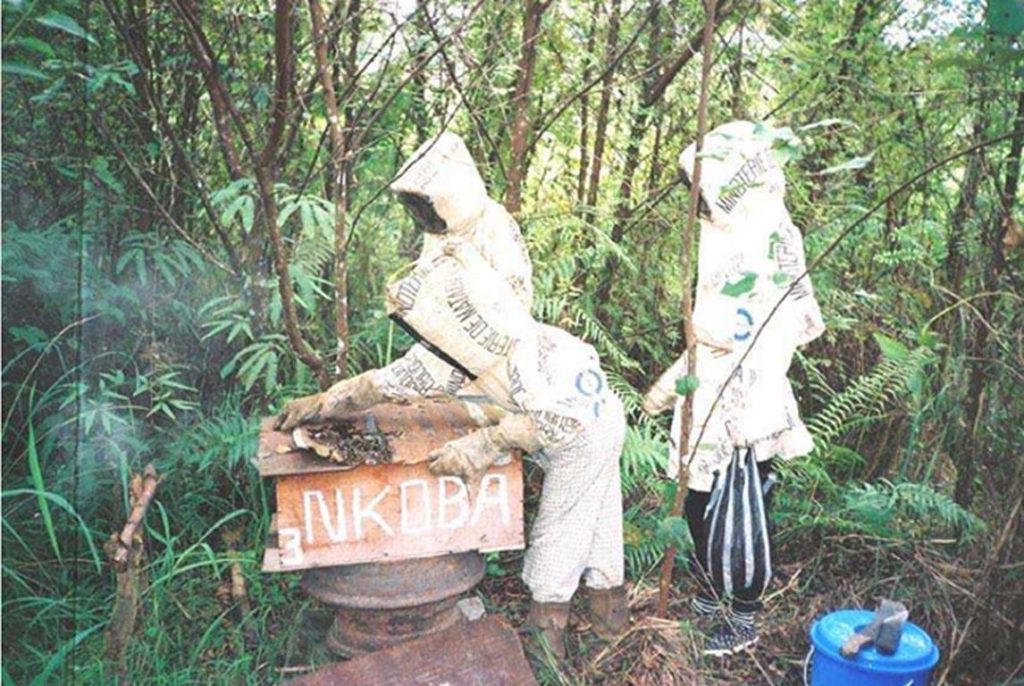
Improvised protective overalls

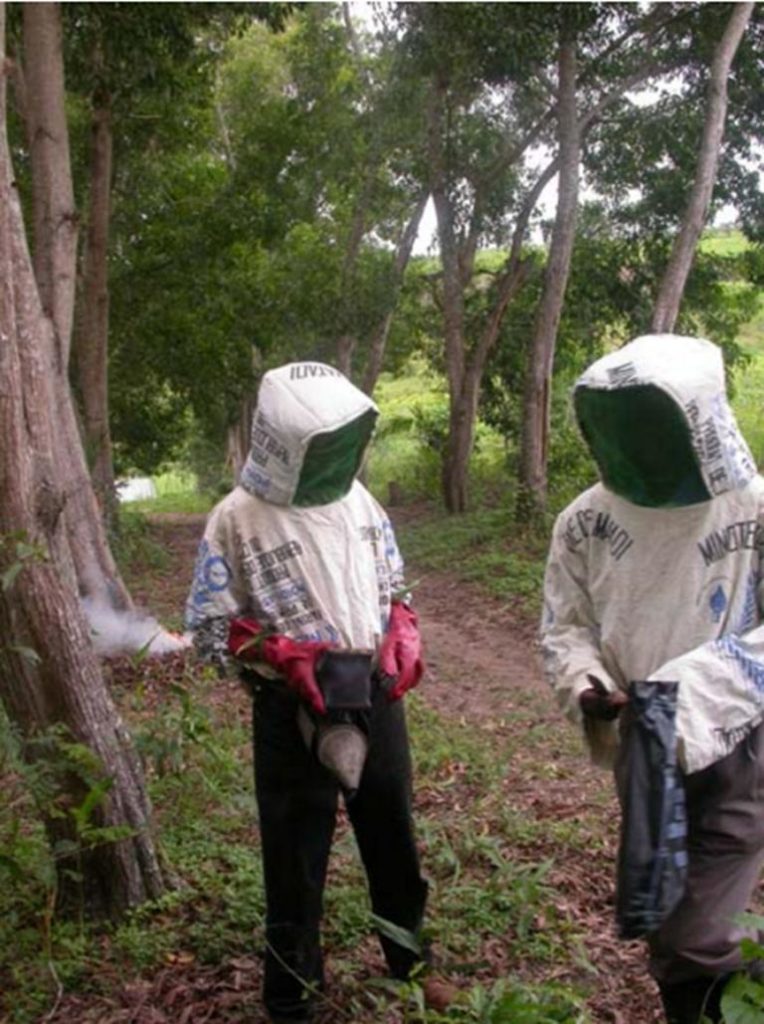
A protective bee suit enables the beekeeper to work with bees calmly and safely. A pair of ordinary trousers can be used as an alternative to the bottom half of the suit. Design by Ntangu Targou. A bee veil/hood with foam padding sewn in to protect the head from stings will serve the purpose. The picture above shows the preparation to inspect hives at Targou’s apiary near Kisantu
Improvised smokers
The smokers are made from metal sheeting with the bellows made from an inner tube and half a bedspring.
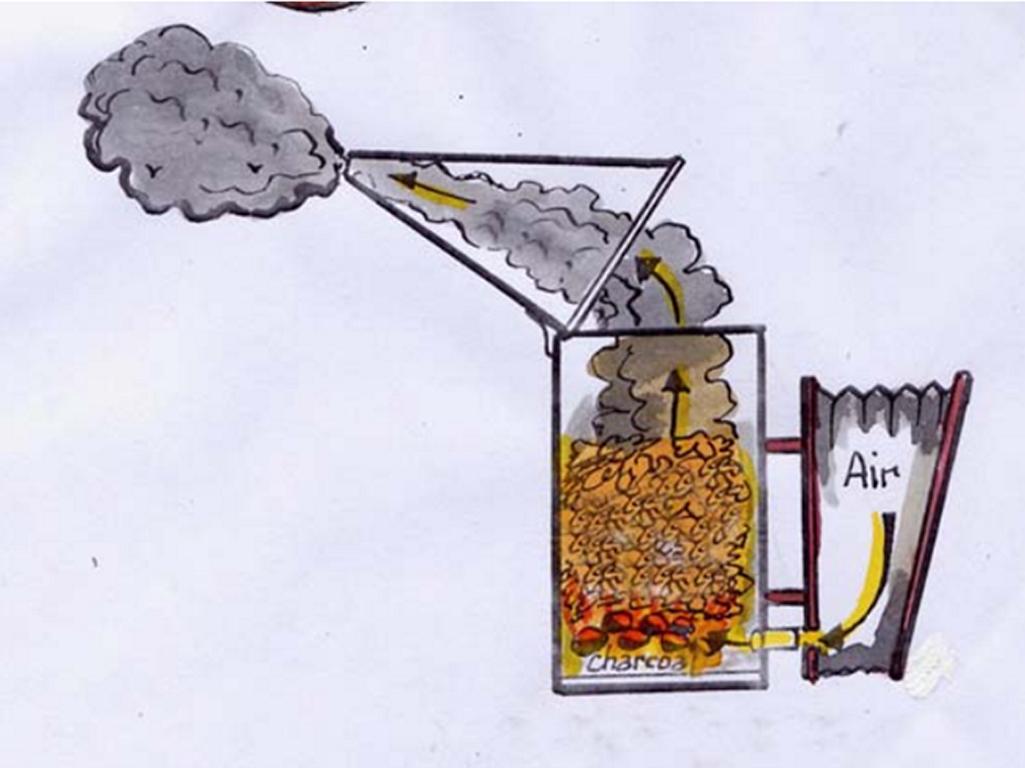
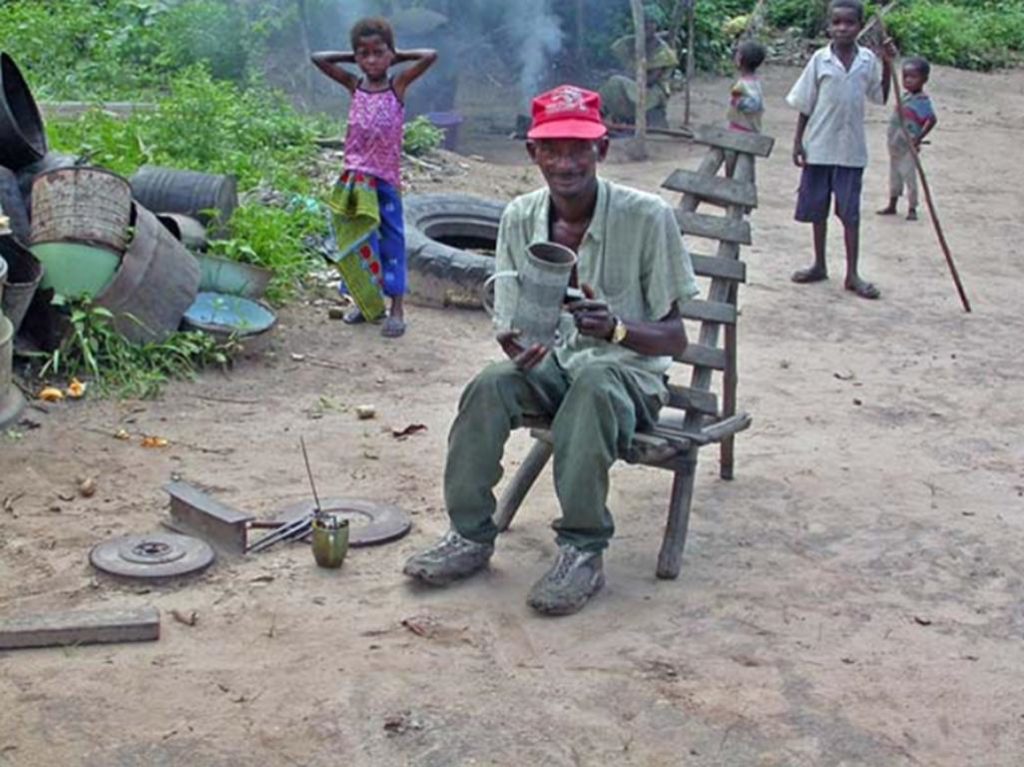

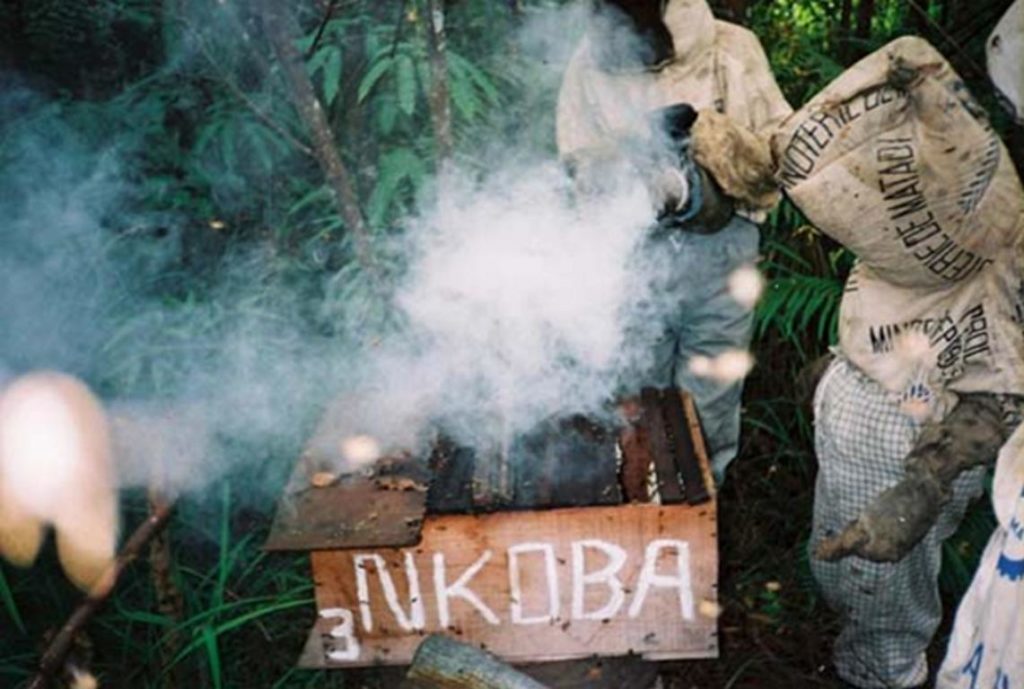
Improvised bamboo smoker
A simple bee smoker can be made up of a large diameter section of bamboo containing a node. A small hole is pierced through the node end and the section is cut through to allow a wide hole at the other end.
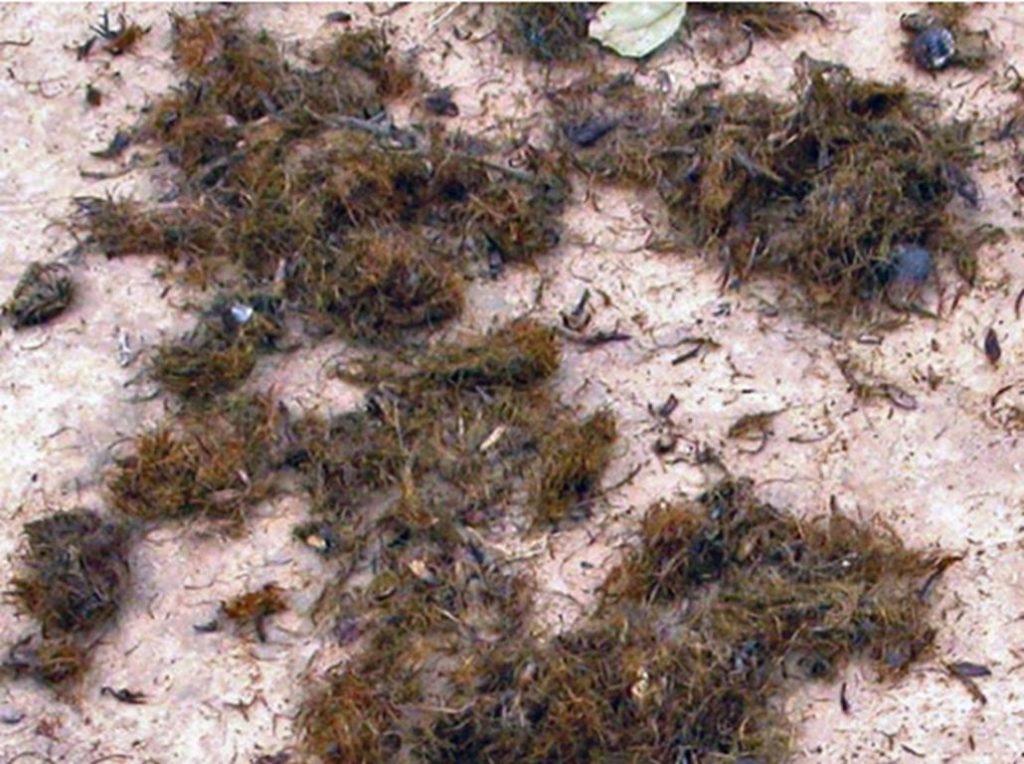
Some suitable material, palm oil waste, for example, is pushed in together with a piece of glowing charcoal and then more palm oil waste until the tube is full. Air can then be blown through the small hole at the node end to produce a cool smoke from the opposite end.
Two holes should be bored opposite each other at the wide end, with a short piece of wire to hold the palm oil waste from falling out. The bamboo tube must be large enough to contain sufficient palm oil waste to last through an inspection or harvest operation.
Lessons learned about improvised equipment for beekeepers
- To handle live bee hives, safety precautions must be taken.
- Protective overalls, including rubber gloves, boots, and a mosquito net in front of the face, have to be worn.
- Improvised smokers will drive bees off their hive.
_________________________________________________________________________________________________________
Text and all photos at this article © Paul Letham. The professional background and contact information of the author of this article can be found here.
Further readings about Bees on this website:
Alternative beehives in D.R. Congo
Wax extraction from honeycombs
Sweat bees – not a danger, but a nuisance
Stingless bee honey collected by Hadza people
Collecting honey in a rock crevice in Vietnam
.




